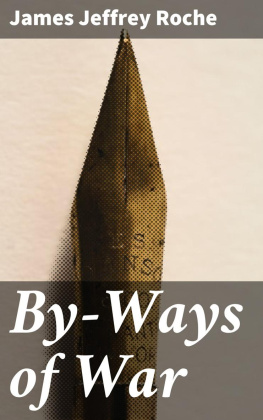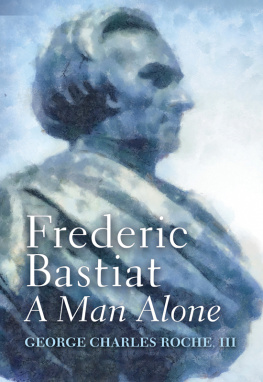PREFACE
Table of Contents
The rise and fall of the American Filibusters belong to the history of the Nineteenth Century. From time to time their deeds have been recounted by actors in the stirring scenes, by contemporary observers, and, incidentally, by travellers in Spanish America who lingered for a moment over the romantic legend of the modern Vikings.
Among the works consulted in the preparation of this volume are: "A History of Miranda's Attempt to Effect a Revolution in South America," by one of his officers; Yokum's "History of Texas"; Green's narrative of the Mier Expedition, and Kendall's of that to Santa Fe; Henri de la Madelaine's "Life of Raoussett-Boulbon"; Wells' account of Walker's expeditions to Sonora and Nicaragua; Walker's "History of the War in Nicaragua"; and the several works relating to the latter country of Squier, Scherzer, Stout, Captain Pim, Chevalier Belly, M. Nicaisse, and many other travellers.
From such sources, as well as from the periodicals and official documents of the day, and from the lips or pens of living comrades in the more recent of those tragedies, have been gathered the facts told in the following pages. It has been no easy task to sift the grains of truth from the mountain of myth, prejudice, and fiction under which the actual deeds of the Filibusters long lay buried.
Forty years ago it would have been well-nigh impossible, in the heated atmosphere of the slavery conflict, to view such a subject with philosophical impartiality. To-day we may study the Filibuster dispassionately, for he belongs to an extinct species. The speculator has supplanted him without perceptibly improving the morality of the world. Even the word "filibuster," transformed to a verb, is degraded to the base uses of politics. It is time to write the history and the epitaph of the brave, lawless, generous anomaly on civilization.
Boston, November, 1900. J. J. R.
CHAPTER I
Table of Contents
Etymology of the word FilibusterNorse AdventurersThe BuccaneersMirandaServices under the DirectoryFirst Expedition from the United StatesDr. Jenner and the King of SpainMiranda's second expedition and death.
The difference between a filibuster and a freebooter is one of ends rather than of means. Some authorities say that the words have a common etymology; but others, including Charlevoix, maintain that the filibuster derived his name from his original occupation, that of a cruiser in a "flibote," or "Vly-boat," first used on the river Vly, in Holland. Yet another writer says that the name was first given to the gallant followers of Dominique de Gourgues, who sailed from Finisterre, or Finibuster, in France, on the famous expedition against Fort Caroline in 1567.
The name, whatever its origin, was long current in the Spanish as "filibustero" before it became adopted into the English. So adopted, it has been used to describe a type of adventurer who occupied a curious place in American history during the decade from 1850 to 1860.
The citizen or subject of any country, who makes war upon a state with which his own is at peace, with intent to overrun and occupy it, not merely for the piratical ends of rapine and plunder, is a filibuster in the true sense of the term. Such act of war is, by the law of nations, a crime against both countries. Its morality, before the meaner court of popular judgment, will rest upon the measure of its success alone. So judged, as all invaders are judged at last, the bold adventurer draws but few prizes in the lottery of fame. Cortez and Houston are among the few successful filibusters of modern times.
In the shadowy chronicles of the Norsemen we find the first trace of that adventurous spirit which, during twelve centuries, gave the dominion of the ocean to the seafaring people of Northern Europe. The bold Vikings who, without chart or compass, sailed over unknown and dangerous seas, crossed the Atlantic and swept the Mediterranean, were the worthy fathers of the Drakes and Ansons of later years. History bespeaks them cruel, rapacious, daring; pirates when, as Wheaton says, the occupation of a pirate was considered not only lawful, but honourable. But they were not wholly destructive. Borrowing a lesson in natural history from their own lemming, they solved the troublesome problem, how to get rid of a surplus population, by sending the superfluous members forth to seek a new field. The lemming eats his way to the sea, in which he finds his grave; but his human imitator more wisely found there a pathway to fortune. They went forth mainly to conquer, incidentally to colonize and settle. Among themselves they were primitive republicans, though harsh tyrants to their vanquished foes. "Who is your king or leader?" asked the herald of King Charles the Simple, before the decisive battle on the banks of the Eure in A.D. 898. "We have no king, no chief, no master; but 'Rolf, the Walker,' leads us in war and on the day of battle," was the proud answer of Rolf's comrades and peers. That this was no idle boast, Rolf's own descendant, King John of England, learned to his sorrow when the sons of the sturdy Norse filibusters met him face to face at Runnymede. The Magna Charta is the written code of that fierce democracy, dreaded alike by its serfs and its kings. The Vikings stand alone as a race of warriors whose hardihood overcame even their native superstition, in leading them to defy the gods themselves. They were sceptics, because they knew not fear. Love was as yet an unknown power in their religion.
The Norsemen were suppressed only by absorption. Owing no fealty to their native land, they took possession of the conquered countries, in which they proved to be the strongest barrier against further aggressions from the dreaded North. But before this degree of safety was gained, all Europe had felt the scourge of the terrible Vikings, who had burned or put in vassalage London, Cologne, Treves, Paris, Tours, and Marseilles; carried their victorious arms to Portugal, Spain, Sicily, and Constantinople; and given dynasties of Norse blood to England, Russia, and France. Rolf married a natural daughter of King Charles, whence came the Norman dukes and the royal line of England. In brief, the Vikings held the western world at their mercy, overturning thrones, founding kingdoms, stabling their horses in the palaces of princes, and upholding on their hireling spears the crown of the fallen Csars.
With the rise of the powerful maritime nations of Europe filibusterism slumbered for several centuries. The immortal expedition of Cortez being, in so far as it lacked the sanction of his king, wholly that of a filibuster, needs but passing mention here. Its success has lifted it into the realms of history and made it a household story. Filibusterism was to awake on a new field and lead the van in the long warfare which, in two hemispheres and during three centuries, has followed the meeting of Northman and Southron. England, and also France, looked with jealous eyes upon the grasping policy of Spain in the New World. The fortune of discovery had given to the two former the apparently barren lots of Canada and the British colonies. Spain had drawn the rich prize of El Dorado. Not content with the spoils of Mexico and Peru, she grudged to the hardy hunters of the West Indies their petty trade with her colonies. She claimed the Mississippi. The epitaph of Columbus was read as a veritable bequest by Spanish greed. But avarice over-reached itself. The persecutions heaped upon the "boucaniers" of the West Indies aroused a spirit of opposition, which success fanned into aggressive fires, and which the governments of England and France did nothing to extinguish. The cumbrous galleon with its golden freight was no match for the swift Vly-boat, manned by reckless adventurers in whom the appetite for gold was whetted by the memory of countless wrongs.














